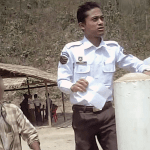Minority groups living in Myanmar have faced profound and pervasive human rights violations for decades. This report documents widespread abuse by military and security forces in Myanmar’s Rakhine State, including detentions, extortion, beatings, raids, and restrictions on movement targeting the mostly Muslim Rohingya minority. It concludes that the Rohingya face such a systematic denial of rights that it pervades nearly every aspect of daily life.
Rakhine State, in western Myanmar, is among the country’s poorest regions, and PHR found that systematic abuse of the Rohingya – as well as of the minority Buddhist Rakhine people – is only serving to exacerbate poverty and deprivation. As part of the report, PHR’s investigators documented and mapped a network of 86 security checkpoints scattered across northern Rakhine State, where Rohingyas are routinely forced to pay bribes or face jail time and other types of brutality at the hands of security forces. Many Rohingyas told PHR that they often avoided seeking advanced medical care because of their fear of passing through checkpoints and suffering the consequent abuse and humiliation.
In addition to the system of checkpoints, PHR gathered evidence of raids and a pervasive surveillance system in Rohingya-populated areas, as well as instances of forced labor and arbitrary detention and fines. These include onerous fees that Rohingyas must pay to leave their villages, register fishing nets, fix their homes – even slaughter their own animals.
While Myanmar has made major strides toward democratization, until changes are made to the country’s Citizenship Law – which denies more than a million Rohingyas the right to a nationality – and military forces end their campaign of subjugation, there will be little hope for peace and development in northern Rakhine State and elsewhere in Myanmar.

